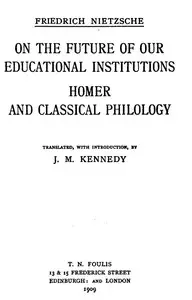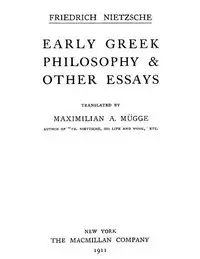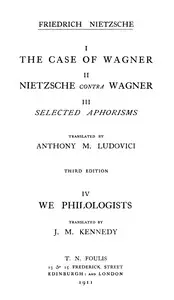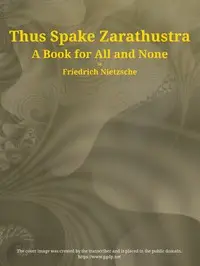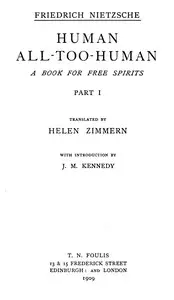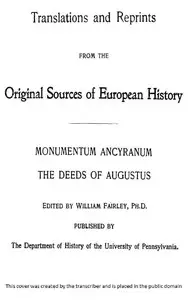"We Philologists" by Friedrich Wilhelm Nietzsche is a thought-provoking exploration of the world of classical studies and its educators. The narrative considers the qualifications and real impact of those teaching ancient cultures in modern times. Nietzsche is uneasy and questions if philologists are truly capable of connecting students with the heart of classical antiquity. He believes too many are simply imitating knowledge or just trying to make a living, rather than possessing any true, deep comprehension. Nietzsche pushes for a philology that doesn't just stay in the past but actively seeks to connect the wisdom of the ancients with today's world, creating a vibrant and true cultural connection for all.

We Philologists Complete Works of Friedrich Nietzsche, Volume 8
By Friedrich Wilhelm Nietzsche
A critical look is taken at educators as someone expresses concerns about their fitness to truly teach ancient cultures and connect them to today's world.
Summary
About the AuthorFriedrich Wilhelm Nietzsche was a German classical scholar, philosopher, and critic of culture, who became one of the most influential of all modern thinkers. He began his career as a classical philologist before turning to philosophy. He became the youngest person to hold the Chair of Classical Philology at the University of Basel in Switzerland in 1869, at the age of 24, but resigned in 1879 due to health problems that plagued him most of his life; he completed much of his core writing in the following decade. In 1889, at age 44, he suffered a collapse and afterward a complete loss of his mental faculties, with paralysis and probably vascular dementia. He lived his remaining years in the care of his mother until her death in 1897, and then with his sister Elisabeth Förster-Nietzsche. Nietzsche died in 1900, after experiencing pneumonia and multiple strokes.
Friedrich Wilhelm Nietzsche was a German classical scholar, philosopher, and critic of culture, who became one of the most influential of all modern thinkers. He began his career as a classical philologist before turning to philosophy. He became the youngest person to hold the Chair of Classical Philology at the University of Basel in Switzerland in 1869, at the age of 24, but resigned in 1879 due to health problems that plagued him most of his life; he completed much of his core writing in the following decade. In 1889, at age 44, he suffered a collapse and afterward a complete loss of his mental faculties, with paralysis and probably vascular dementia. He lived his remaining years in the care of his mother until her death in 1897, and then with his sister Elisabeth Förster-Nietzsche. Nietzsche died in 1900, after experiencing pneumonia and multiple strokes.


